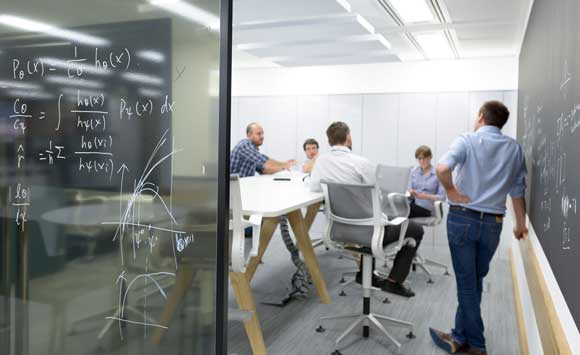AMRC to collaborate with The Alan Turing Institute on AI adoption in manufacturing
January 28, 2021

The Alan Turing Institute, British Library, London, UK, and the Advanced Manufacturing Research Centre (AMRC), University of Sheffield, South Yorkshire, UK, have signed a Memorandum of Understanding (MoU) to work together to identify opportunities for Artificial Intelligence (AI) adoption in manufacturing, accelerate research collaboration and boost skills development.
The agreement will draw on the institutes’ research and development skills across manufacturing, data science, machine learning and AI. Researchers from The Alan Turing Institute and the AMRC aim to find solutions to some of the challenges facing the manufacturing sector such as meeting increasing demand and the response to the coronavirus (COVID-19) pandemic.
The AMRC is a network of world-leading research and innovation centres working with global manufacturing companies. It is part of the High Value Manufacturing (HVM) Catapult, an alliance of seven technology and innovation centres that work with industry to help bridge the gap between technology concept and commercialisation.
The Alan Turing Institute is a national institute for data science and AI and undertakes research which tackles some of the biggest challenges in science, society and the economy. Mutual research areas of interest in the agreement between the institutes include uncertainty quantification; human-centric design; and privacy-preserving technologies, including utility and application of synthetic data.
At The Alan Turing Institute, the collaboration will be led by the Data-Centric Engineering research programme, a £6 million research initiative funded by the Lloyd’s Register Foundation. The agreement is said to demonstrate an important step for the programme as it seeks to consolidate a research strategy in the domain of manufacturing. It is hoped the new collaboration is the first of many in this research area.
“Establishing ties with the AMRC is essential to furthering our strategy in the area of manufacturing,” stated Mark Girolami, the Turing’s Programme Director for Data Centric Engineering. “Having access to a national network of manufacturing research expertise, combined with the unique skill set of Turing researchers, creates an exciting opportunity for innovative, solution-led research outcomes that address key challenges such as maximising automation, integrating intelligent software, increasing capacity, and reshoring, facing the manufacturing sector.”
Professor Rab Scott, Head of Digital at the AMRC, commented, “Bringing these world-class organisations together will provide a tremendously valuable resource for the UK’s manufacturing sector. Working together, the AMRC and The Alan Turing Institute will be able to demonstrate how realising greater insights and values from manufacturing data can lead to improvements in productivity, resource utilisation, sustainability and really impact the bottom line.”
Professor Sam Turner, Chief Technology Officer for the HVM Catapult, noted, “AI and machine learning are likely to be at the heart of many manufacturing systems and it is important that the UK harnesses its research and innovation capability to take a leading role in developing solutions.”
















